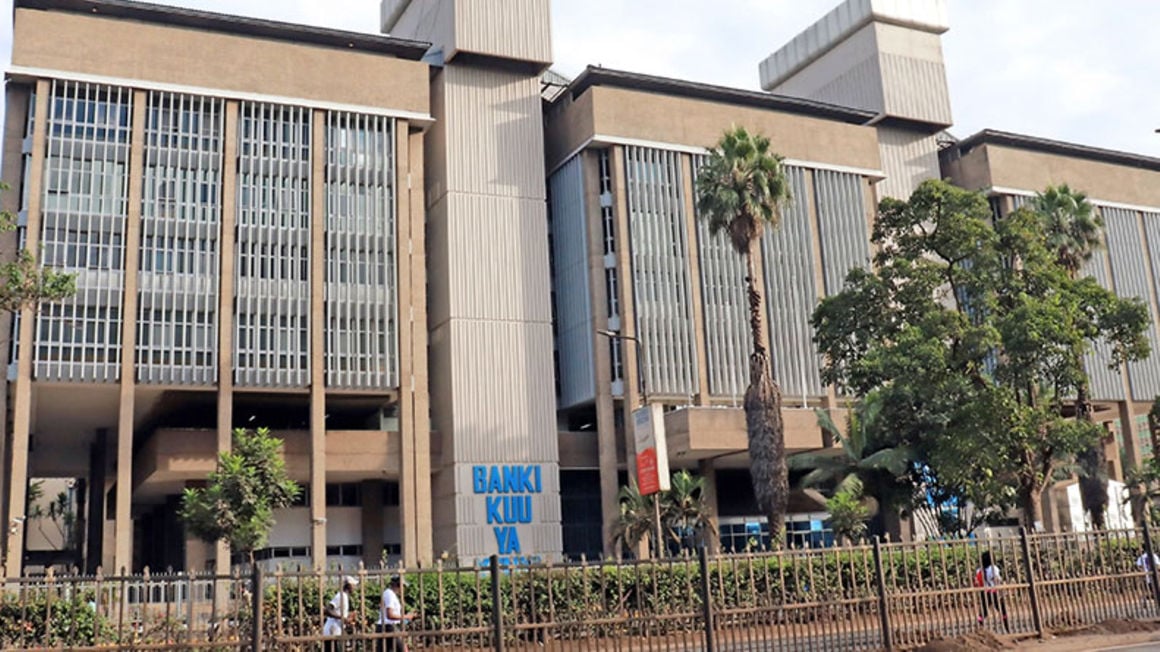
Central Bank of Kenya. FILE PHOTO | NMG
The share of loan defaults has increased to a 13-year high in the wake of the Covid-19 economic fallout, setting up thousands of borrowers for property seizures and blacklisting with the credit reference bureaus (CRBs).
Latest Central Bank of Kenya (CBK) data shows that 14.5 percent of all loans or Sh432.45 billion were defaults by end of February, up from Sh349.94 billion a year ago— the sharpest 12-month increase in recent history.
The mounting defaults are a reflection of the struggles of workers and businesses in an economy recovering from a coronavirus-induced slump, which triggered job cuts and business closures.
The share of defaulted loans has increased from 12.7 per cent last February to 14.5 per cent—the highest ratio since July 2007.
Banks that had gone slow on property seizures last year following the pandemic have stepped up debt recovery efforts to clean up their loan books, leading to a spike in auctions.
Thousands of defaulters have since January been appearing in the books of Kenya’s three CRBs — Metropol, TransUnion and Creditinfo International—after the CBK lifted the suspension of listing for loans that were defaulted after April 1.
The CBK says the defaulted loans are mainly in the real estate, agriculture and manufacturing sectors besides those listed as personal and household.
“The increases in NPLs were attributable to the subdued business environment, and banks continue to make provisions for the NPLs,” said CBK governor Patrick Njoroge.
Industries and other businesses have since cut down on their activities in response to the infectious disease, leading to job cuts and unpaid leave for retained staff as profitable firms move into losses.
This has seen workers who had tapped mortgages and unsecured loans for purchase of goods such as furniture and cars and expenses like school fees default. Unsecured loans are given on the strength of one’s salary.
Businesses that tapped loans based on their projected cash flows are also struggling to meet the loan obligations.
Commercial banks have alerted Central Bank of intensified property auctions in this quarter.
“For the quarter ending March 31, 2021, banks expect to intensify their credit recovery efforts in all economic sectors. The intensified recovery efforts are aimed at improving the overall quality of the asset portfolio,” the banks told the CBK’s December credit survey.
Auctioneers reckon they held more auctions this year compared to the second half of last year, arguing that banks are moving much faster to seize properties from defaulters.
There has been a glut of repossessed homes, cars and office blocks on the market, which bankers are struggling to sell in Kenya’s soft economy.
The enhanced recovery efforts come in an environment where the number of loan accounts negatively listed with CRBs had jumped by 45 per cent from 9.67 million in August last year to hit 14.03 million in January this year.
A majority of banks said much of their recovery effort would be on portfolios in trade (89 per cent), personal and household (87 per cent), real estate, transport and communication and building and construction (84 per cent).
Top-tier banks—Absa Kenya, Stanbic Bank, Co-operative Bank, Diamond Trust Bank, Equity, I$M, KCB, NCBA and Standard Chartered Kenya— posted 43 per cent rise in gross NPLs to Sh110.94 billion in the year ended December, highlighting the impact of rising defaults.
Kenya last Friday announced a new partial lockdown to curb Covid-19 infections, including restricted travel in Nairobi and four other counties, a stricter curfew, closure of bars, and suspension of in-person schooling.
The restrictions have sparked fears of another round of layoffs and job cuts, which could trigger further loan defaults and a cash crunch in an economy recovering from the effects of Covid-19.
Borrowers holding restructured loans worth Sh569.3 billion risk auctions and blacklisting after CBK withdrew the loans relief introduced last year.
The CBK said that March 2 marked the end of the period for the loan repayment reliefs extended to borrowers facing economic hardships related to the pandemic.
The regulator allowed banks to reschedule payments for customers days after the first Covid-19 case was reported in Kenya on March 13, 2020.
Borrowers who still have outstanding restructured loans will have until June 3 to regularise them in what will heighten property seizures.
In the Headlines





No comments :
Post a Comment